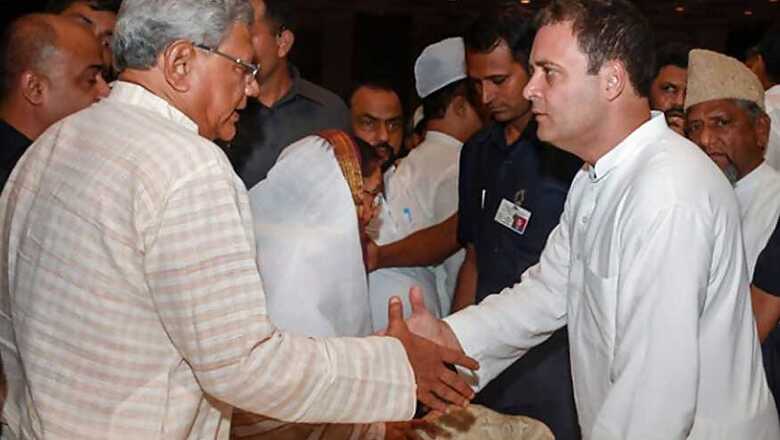
views
New Delhi: The fate of Prime Minister Narendra Modi’s ‘one nation, one poll’ could be decided in the next few days as political parties are all set to meet the Law Commission of India to discuss the feasibility of simultaneous elections in the country.
Representatives of at least 14 political parties are scheduled to meet the Commission on July 7, 8 and 10. However, two parties are likely to miss the meeting.
News18 has learnt that Congress and Communist Party of India are yet to respond to the invitation, while CPI(M) leader Sitaram Yechury replied to the Commission stating that the proposal is an effort to “trample upon the existing Constitutional scheme of parliamentary democracy”. He said that ‘one nation, one poll’ would be “a casualty on federalism”.
The Commission, headed by Justice B S Chauhan, had reached out to political parties and invited them to hold talks on the subject. Once all viewpoints are taken into consideration, the law panel will submit its report.
“While Trinamool Congress, represented by a Supreme Court lawyer, will be the first one to meet the Commission on Saturday, AIADMK will meet on Sunday and BJD on Tuesday,” said a law panel member.
Interestingly, All India Anna Dravida Munnetra Kazhagam (AIADMK), which had supported the idea of simultaneous polls way back in 2015-2016, is skeptical about the proposal as it may "affect the tenure" of the state government. Fearing this, the Tamil Nadu government has written to the Commission.
Tamil Nadu Chief Minister Edapaddi Palaniswami and Deputy CM O Pannerselvam have stated in the letter that present Tamil Nadu legislative Assembly should be allowed to complete its tenure till 2021, and it should not be curtailed eyeing simultaneous polls.
Besides, Biju Janata Dal (BJD), Yogi Adityanath-led BJP from UP, All India United Democratic Front (AIUDF) from Assam will be attending the meeting.
Two new Muslim political parties will also meet the Chauhan-led panel. AIUDF will be represented by a panel of Supreme Court lawyers, who are members of the party too.
Earlier in January this year, at a meeting of the Parliamentary Standing Committee on Personnel, Public Grievances, Law and Justice, members belonging to the Congress, Communist Party of India, Communist Party of India-Marxist and Trinamool Congress had expressed their opposition to the idea being floated by Prime Minister Narendra Modi.
A senior member of the All India Trinamool Congress (AITC), who is aware of party's legal stand on the issue, has told News18 that simultaneous polls at the moment was to only to “deflect attention” from the “failures” of the Modi regime, and was not needed.
AITC last year too had called the proposal mooted by the Prime Minister a "distraction.'
However, on a different note, Odisha Chief Minister and BJD president Naveen Patnaik has recently announced his party's support to Prime Minister Narendra Modi's proposal for holding simultaneous elections to the Lok Sabha and state assemblies.
The moot document set for consideration in the meeting to be held with the commission will be the Working paper drafted by the commission on the possibility of holding simultaneous polls.
In the working paper, the commission had proposed a series of Constitutional and other amendments to the Representation of Peoples Act, 1951, and Rules of Procedure to carve the way for ‘One Nation, One Poll’.
The commission has recommended a two-phased election process for the simultaneous election process and made it clear on Tuesday that the Constitution “foresaw that the elections to the legislatures of various states and the Centre will not always be concurrent”.
However, putting an end to the debate of whether Constitutional amendments were required or not for holding simultaneous polls, the commission suggested that amendments would have to be made in the Constitution, Representation of Peoples Act, 1951 and “rules of procedure of Lok Sabha and those of the state legislative assemblies”.
The commission further suggested that a definition of simultaneous elections should also be added to Section 2 of the 1951 Act and proposed that the ‘Vote of No Confidence’ be replaced with a “Constructive Vote of no Confidence” by “amending the rules of procedure and conduct of business of Lok Sabha and a new rule in the form of rule 198 a be added”.




















Comments
0 comment